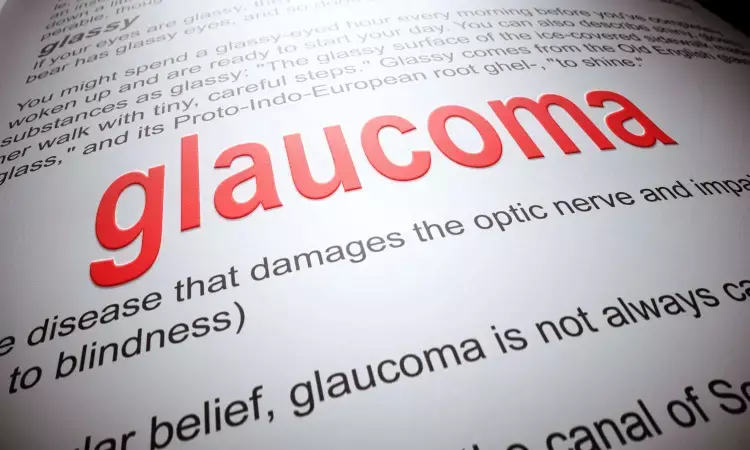- Home
- Medical news & Guidelines
- Anesthesiology
- Cardiology and CTVS
- Critical Care
- Dentistry
- Dermatology
- Diabetes and Endocrinology
- ENT
- Gastroenterology
- Medicine
- Nephrology
- Neurology
- Obstretics-Gynaecology
- Oncology
- Ophthalmology
- Orthopaedics
- Pediatrics-Neonatology
- Psychiatry
- Pulmonology
- Radiology
- Surgery
- Urology
- Laboratory Medicine
- Diet
- Nursing
- Paramedical
- Physiotherapy
- Health news
- Fact Check
- Bone Health Fact Check
- Brain Health Fact Check
- Cancer Related Fact Check
- Child Care Fact Check
- Dental and oral health fact check
- Diabetes and metabolic health fact check
- Diet and Nutrition Fact Check
- Eye and ENT Care Fact Check
- Fitness fact check
- Gut health fact check
- Heart health fact check
- Kidney health fact check
- Medical education fact check
- Men's health fact check
- Respiratory fact check
- Skin and hair care fact check
- Vaccine and Immunization fact check
- Women's health fact check
- AYUSH
- State News
- Andaman and Nicobar Islands
- Andhra Pradesh
- Arunachal Pradesh
- Assam
- Bihar
- Chandigarh
- Chattisgarh
- Dadra and Nagar Haveli
- Daman and Diu
- Delhi
- Goa
- Gujarat
- Haryana
- Himachal Pradesh
- Jammu & Kashmir
- Jharkhand
- Karnataka
- Kerala
- Ladakh
- Lakshadweep
- Madhya Pradesh
- Maharashtra
- Manipur
- Meghalaya
- Mizoram
- Nagaland
- Odisha
- Puducherry
- Punjab
- Rajasthan
- Sikkim
- Tamil Nadu
- Telangana
- Tripura
- Uttar Pradesh
- Uttrakhand
- West Bengal
- Medical Education
- Industry
Higher diglycerides and triglycerides levels associated with glaucoma

UK: Higher triglycerides and diglycerides are adversely associated with glaucoma, indicating that they play an important role in glaucoma pathogenesis, states a recent study published in Nature Communications.
Glaucoma is the leading cause of irreversible blindness worldwide. Primary open-angle glaucoma (POAG) is the most common form, yet this disease's cause is poorly understood. Findings from previous genome-wide association studies suggest that there is a complex metabolic network that affects optic nerve health.
Researchers from Brigham and Women’s Hospital, a founding member of the Mass General Brigham healthcare system, and the Department of Ophthalmology at the Icahn School of Medicine at Mount Sinai aimed to identify plasma metabolites associated with the risk of developing POAG in a case-control study nested within the prospective Nurses’ Health Studies and the Health Professionals Follow-Up Study.
This study included 599 participants who developed POAG and 599 matched controls and examined pre-diagnostic circulating plasma metabolites from approximately ten years before POAG diagnosis. To confirm the findings, the researchers evaluated the metabolomic data in plasma samples of 2,238 glaucoma cases and 44,723 controls from the UK Biobank. They found that higher levels of diglycerides and triglycerides were associated with the risk of glaucoma, suggesting that they play an important role in glaucoma pathogenesis.
“Our study is the first to assess associations between pre-diagnostic circulating metabolites and POAG risk in two large independent datasets,” said co-first authors Oana A. Zeleznik, PhD, and Jae H. Kang, ScD, investigators at Brigham’s Channing Division of Network Medicine. “These results provide new insights into the aetiology of POAG. Our data implicate dysregulation in lipid metabolism and mitochondrial function in glaucoma aetiology and suggest new targets for glaucoma prevention or therapies,” said senior author Louis R. Pasquale, MD, Professor of Ophthalmology at the Icahn School of Medicine at Mount Sinai.
Reference:
Zeleznik, O.A., Kang, J.H., Lasky-Su, J. et al. Plasma metabolite profile for primary open-angle glaucoma in three US cohorts and the UK Biobank. Nat Commun 14, 2860 (2023). https://doi.org/10.1038/s41467-023-38466-w
Dr Kamal Kant Kohli-MBBS, DTCD- a chest specialist with more than 30 years of practice and a flair for writing clinical articles, Dr Kamal Kant Kohli joined Medical Dialogues as a Chief Editor of Medical News. Besides writing articles, as an editor, he proofreads and verifies all the medical content published on Medical Dialogues including those coming from journals, studies,medical conferences,guidelines etc. Email: drkohli@medicaldialogues.in. Contact no. 011-43720751


